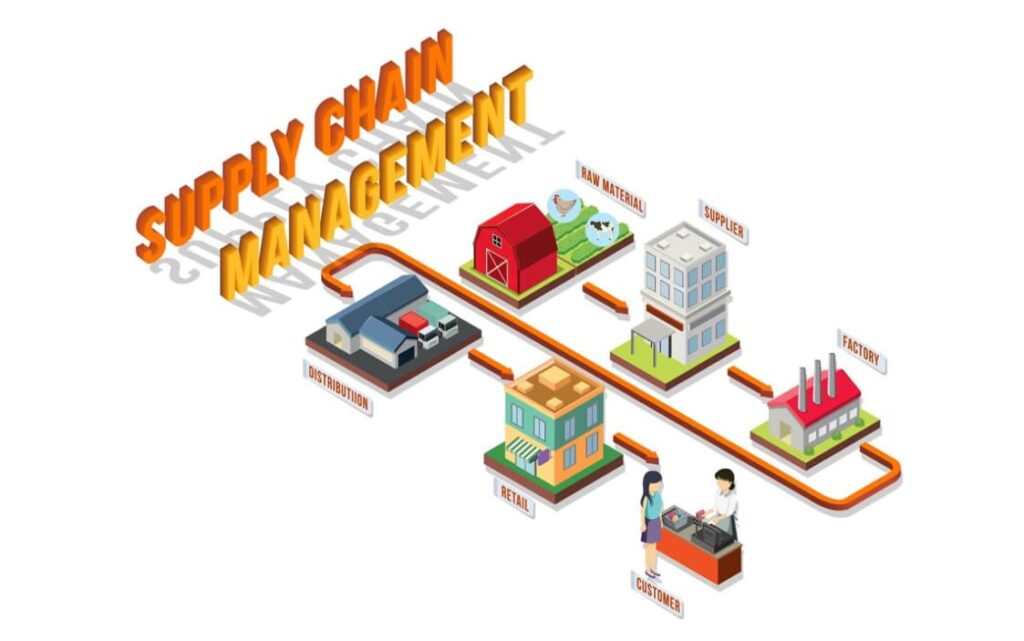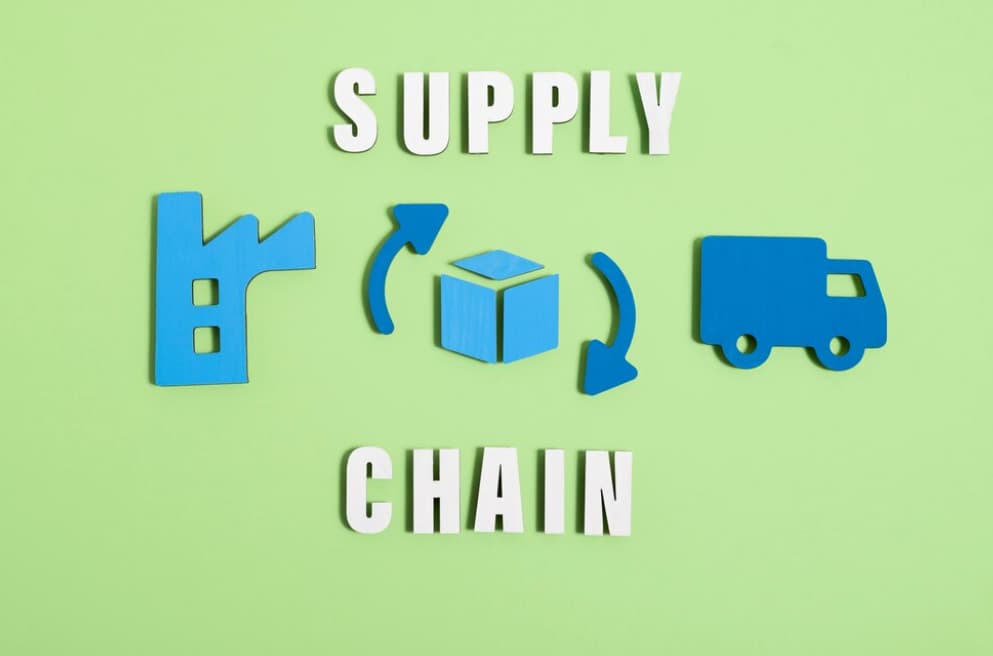Integrating blockchain technology with smart contracts holds the key to revolutionizing supply chain management by offering:
- Complete visibility from the product’s origin to its end use;
- Accurate monitoring of asset movements;
- Enhanced authorization mechanisms for services, products, and software.
Despite technological progress, the supply chain sector stands to benefit immensely in terms of operational efficiency, auditability, and the curtailment of malpractices. In the realm of shipping, the cost of paperwork can constitute up to half of the total transportation expenses. A striking investigation by Oceana in the United States, spanning 2010 to 2012, unveiled that seafood was mislabeled as much as 87% of the time. Furthermore, mica, found in a variety of products from cosmetics to car paint, is often sourced from illegal mines employing child labor.
Additionally, industries like electronics, pharmaceuticals, and high-end consumer goods face severe risks of counterfeiting and fraud. A study by PwC highlights that counterfeit merchandise accounts for over 2% of global economic activity.
The implementation of blockchain-based systems, be they public, private, or a combination of both, is set to bolster traceability, openness, and responsibility in tracking product journeys. Leveraging blockchain in logistical operations could significantly simplify business procedures and diminish the ancillary costs tied to managing supply chains.
Optimizing Supply Chain Operations Using Blockchain
Blockchain technology untangles the complex network involving suppliers, producers, distributors, retailers, auditors, and end-users within supply chains. It achieves this by implementing a consolidated information technology framework, enabling seamless interactions across entities of varying sizes and providing auditors with improved surveillance across the entire value chain.
The distinguishing feature of blockchain is its proficiency in driving cost savings alongside elevating the customer experience by boosting traceability, ensuring transparency, and streamlining commercial transactions.
Key Blockchain Applications in Supply Chain Management

Blockchain technology is transforming supply chain management with its groundbreaking applications:
- Traceability: Enhancing operational effectiveness, blockchain technology allows for the detailed mapping and visualization of supply chains. This meets the growing consumer appetite for knowledge about the origins of products. Blockchain empowers businesses to supply their customers with reliable, unalterable, and comprehensive information regarding their supply chain journeys;
- Transparency: Blockchain elevates the level of transparency by documenting crucial information such as certifications and product claims on a decentralized ledger, making it accessible to the public. Once information is logged onto a blockchain platform like Ethereum, its veracity can be independently confirmed, enabling updates and validations in real time;
- Tradability: Introducing an innovative approach to tradability, blockchain technology enables the “tokenization” of assets, breaking them down into digital tokens that signify ownership. Similar to the concept of stock trading, this allows for partial ownership and the exchange of tokens that represent an interest in a tangible asset, streamlining the transfer of ownership without the logistical challenges of moving the actual asset.
These pioneering applications not only challenge and improve upon conventional supply chain management methods but also pave the way for enhanced efficiency, reliability, and innovation within the industry.
Blockchain Revolutionizing Supply Chain Transparency
In the intricate web of global supply chains that deliver everything from everyday consumer goods to specialized items, the need for efficient traceability is paramount. This need becomes particularly critical when issues necessitate the recall of products or ingredients to safeguard public health. The repercussions of recalls—ranging from lost sales and replacement costs to potential lawsuits—can have a profound impact on millions worldwide. Blockchain technology stands as a transformative tool, enhancing product traceability, minimizing the risk of counterfeiting, and optimizing the recall process.
Enhancing Recall Processes with Blockchain
The challenge of conducting timely and cost-effective recalls is significantly mitigated when manufacturers can swiftly pinpoint and retrieve the affected products. Blockchain technology revolutionizes this aspect by fostering a transparent and traceable supply chain, thus streamlining recall operations. The ability to quickly identify the distribution path and current location of any product significantly reduces the time and resources required for recalls, ensuring consumer safety with greater efficiency.
Combatting Counterfeiting with Blockchain Innovation
The menace of counterfeiting is a significant global issue, with the Global Brand Counterfeiting Report, 2018, revealing staggering losses amounting to 323 billion USD in 2017 due to online counterfeiting alone. Specifically, counterfeit pharmaceuticals account for nearly 188 billion dollars in lost revenue annually. Blockchain technology offers a robust solution by enabling the verification of a product’s sourcing and ethical credentials directly by consumers, thus ensuring authenticity.
Moreover, the risk of documentation fraud, prevalent in the issuance of diplomas, certifications, and official identifications, is also addressed by blockchain technology. By providing a transparent mechanism for the verification of such documents, blockchain ensures the integrity and immutability of records, effectively deterring fraud and counterfeiting across various sectors.
Through these innovations, blockchain technology not only enhances the transparency and efficiency of supply chains but also significantly reduces the economic and safety risks associated with product recalls and counterfeiting. This advancement marks a pivotal step towards more secure, reliable, and consumer-friendly global market practices.
Blockchain for Enhanced Supply Chain Transparency
Blockchain technology revolutionizes supply chain management by facilitating seamless process tracking, ensuring regulatory compliance, and enhancing reporting capabilities.
Blockchain technology is driving significant improvements in supply chain transparency and process tracking. With supply chain traceability being a leading use case, the adoption of distributed ledger technology has the potential to boost trade volume by 15% and elevate the U.S. GDP by up to 5%. Through blockchain, the ability to monitor the entire lifecycle of any digital or physical product is facilitated, fostering sustainable and ethical production and consumption practices on a global scale.
Across various industries, the utilization of third-party manufacturers and multiple vendors is commonplace, often resulting in complex processes involving white-label products and relabeling under different brands. Transparent process tracking enables producers to gain comprehensive insights into their value chain, ensuring seamless handling of third-party goods and accurate final product labeling.
Blockchain enables the seamless tracking and recording of asset progression, empowering stakeholders to access historical asset records effortlessly. Smart contracts, deployed on platforms like Ethereum, enforce stringent asset tracking protocols, allowing real-time visibility into the provenance and journey of assets, regardless of whether they are physical or digital.
Enhancing Compliance and Reporting via Blockchain
Blockchain technology plays a pivotal role in enhancing regulatory compliance and reporting, particularly in industries like pharmaceuticals where patient reliance on prescription drugs underscores the importance of efficient supply chain management. Ensuring the balance between maintaining optimal medication levels without risking under or overstocking is crucial.
The implementation of automated compliance and reporting mechanisms offers significant advantages, including reduced friction, lower reporting costs, and the elimination of errors commonly associated with manual processes. Blockchain-based compliance solutions not only streamline reporting but also elevate corporate governance standards by providing real-time access to information and seamlessly distributing data to relevant stakeholders. Moreover, the application of blockchain holds promise in improving compliance and reporting across various sectors, including medical devices, prescriptions, manufacturing, and other consumer goods.
Tradeability in the Supply Chain with Blockchain Technology
Blockchain technology streamlines the processes of ownership and licensing, pivotal for myriad sectors. It establishes uniform licensing frameworks that authenticate previous ownership, offering a sturdy platform for this purpose. Additionally, blockchain excels in the precise authorization of services, products, and software via automated transactions through smart contracts.
Blockchain promotes agreement among all stakeholders, fostering transparency and resolving any transaction-related conflicts within the network. Its ledger system meticulously records ownership details for a variety of assets, including property, vehicles, and digital goods.
Blockchain Revolution in Supply Chain Management

The adoption of blockchain technology within supply chain management marks a transformative shift across global industries. Blockchain’s assurance of transparency, security, and operational efficiency is transforming the manner in which businesses monitor and administer their supply chains. Below are notable instances of enterprises that have embraced blockchain innovations:
| Company | Use Case | Impact |
|---|---|---|
| IBM Blockchain Platform | Digitizing transaction workflows with a shared, immutable ledger. | Enables companies to increase transparency, efficiency, and collaboration across their supply chains. |
| Maersk and IBM – TradeLens | A blockchain-based shipping solution designed to increase global trade transparency. | Facilitates more efficient and secure global shipping operations, leveraging real-time access to shipping data and shipping documents. |
| Walmart – Food Traceability Initiative | Improving traceability of food products from farm to store. | Significantly reduces the time required to trace the origin of food products, enhancing food safety and response times in case of contamination. |
| De Beers – Diamond Traceability | Authenticating and tracing the journey of diamonds to ensure they are conflict-free. | Builds consumer trust by providing a transparent and secure record of a diamond’s journey from mine to retail. |
In recent years, the integration of blockchain technology into supply chain management has emerged as a revolutionary approach, offering unprecedented transparency, security, and efficiency. Companies across various industries are increasingly implementing blockchain solutions to streamline operations, reduce fraud, and enhance collaboration across the supply chain. For instance, IBM’s Blockchain Platform has been pivotal for companies looking to digitize transaction workflows through its shared, immutable ledger. Another notable example is Maersk, the world’s largest container shipping company, which has partnered with IBM to create TradeLens, a blockchain-based shipping solution that promotes greater global trade transparency. Similarly, Walmart has leveraged blockchain technology to improve food traceability, significantly reducing the time required to track produce from farm to store. This allows for quicker response times in the event of food safety issues. Additionally, De Beers, the diamond giant, has implemented blockchain to authenticate and trace the journey of diamonds, ensuring they are conflict-free. These examples underscore the transformative potential of blockchain in enhancing the visibility, reliability, and efficiency of supply chains, making it a cornerstone technology for modern logistics and supply management.
Conclusion
Adopting blockchain technology in supply chain management revolutionizes traditional hurdles. With blockchain’s unchangeable records and smart contracts, businesses achieve greater transparency, operational efficiency, and adherence to regulations. Instant access to product tracking allows for quick action against recalls and fake goods, building consumer confidence and minimizing financial threats. Moreover, blockchain simplifies regulatory compliance and reporting, cutting down on expenses and mistakes, thereby elevating governance quality. As more organizations embrace blockchain, its capacity to significantly alter various sectors grows apparent, leading to a safer and more consumer-oriented market.
